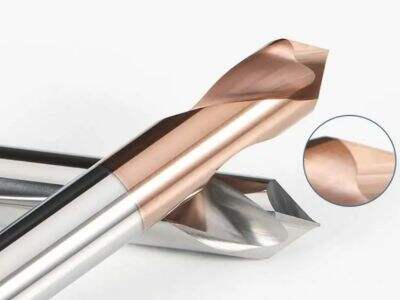Ever wonder what tools your dad or grandpa used to work on metal projects? For example, if they will drill holes in the metal. Drills are essential implements for various kinds of work. The first type of drills they can use is the High-Speed Steel (HSS) drills and tungsten carbide drill. Each of these drills is unique on its own and knowing what to select for your metal job is of utmost importance.
Selecting High-Speed Steel or Carbide Drills
Choosing between HSS drills and Carbide drills should be done after considering few things carefully. Look at the kind of metal project that you are working on. HSS drill bits work well with softer metals. That means they are compatible with aluminum, brass and copper. These metals can be drilled through with more ease. Conversely, Carbide drills provide superior teeth for drilling tougher metals. These can include materials such as titanium, stainless steel, and cast iron and are far more difficult to machine.
After that, consider how big the hole is that you need to create. HSS drill bits penetrate small holes easily. If you have to drill one little hole, HSS drills will work great. Although for bigger holes Carbide drills are more appropriate. Carbide drills are the better option if your project requires a large drill hole.
How long do you want your drill to last Carbide drills are extremely long-lasting so these drill bits can be utilized for a lot of time without sporting out. But they most usually require additional funds in comparison to HSS drill bits. Thus, if you are looking for longevity and dreaded to burn some extra bucks, Carbide drills is your friend.
HSS vs Carbide Drills
Well, just for starters, we can compare a few differences between HSS drills and Carbide drills in some detail. HSS drills, This is a type of drill steel that can withstand rapid speeds and elevated temperatures. Which means they have no problem operating quickly without being hurt. Conversely, carbide drill bits are manufactured from a much stronger or harder metal carbide: tungsten-carbide. This is a very sturdy material that is able to withstand high velocities and heat without exploding.
The other is the sharpness of the drills. HSS drill bits are capable of carving their way through softer metals much easier as they are sharper than Carbide drill bits. Carbide drills, while not as sharp, do also last a long time but it appears that they are not as sharp. That means no matter how dull they are, they can perform well in time. Last but not the least thing to mention is with HSS drills most of the time they are relatively much cheaper than Carbide drills thus making them a good choice if you have budget constraint.
Separating HSS and Carbide Drills by Metal Cutting
HSS drills can be great for softer metals, but they may not be as effective on tougher metals, so beware when using these drill bits. That's because harder metals can be more difficult to drill through. Carbide drills, on the other hand, are designed much better to work with harder metals. They're more durable and are therefore a better investment for heavy duty work. Hot HSS drills can cause metals to deform and produce rough holes. So if you are looking for a clean hole in an apparently difficult metal, a Carbide drill is the way to go.
Comparison of High-Speed Steel vs Carbide Drills
In short, the differences between HSS drills vs. Carbide drills are their composition, their sharpness, and their longevity. HSS drills are steel made and this allows them to be sharp but not as much durable as Carbide drills. They work well with softer metals, as well as for drilling smaller holes. Carbide drilling, on the other hand, creates drills that use tungsten carbide.
For any metal project that requires drilling, it is vital to understand which drill you are going to need for your work. The difference between HSS drills and carbide bit drill is primarily based on the metal you are drilling, the outer diameter of the drill hole and how long you want the drill to be solid. Having both HSS drills and Carbide drills is always a good idea. That way you will be all set for whatever kinds of metallic projects come your way!

 EN
EN
 AR
AR
 BG
BG
 HR
HR
 CS
CS
 DA
DA
 NL
NL
 FI
FI
 FR
FR
 DE
DE
 EL
EL
 HI
HI
 IT
IT
 JA
JA
 KO
KO
 NO
NO
 PL
PL
 PT
PT
 RO
RO
 RU
RU
 ES
ES
 SV
SV
 CA
CA
 TL
TL
 IW
IW
 ID
ID
 LV
LV
 LT
LT
 SR
SR
 SK
SK
 SL
SL
 UK
UK
 VI
VI
 SQ
SQ
 ET
ET
 GL
GL
 HU
HU
 MT
MT
 TH
TH
 TR
TR



